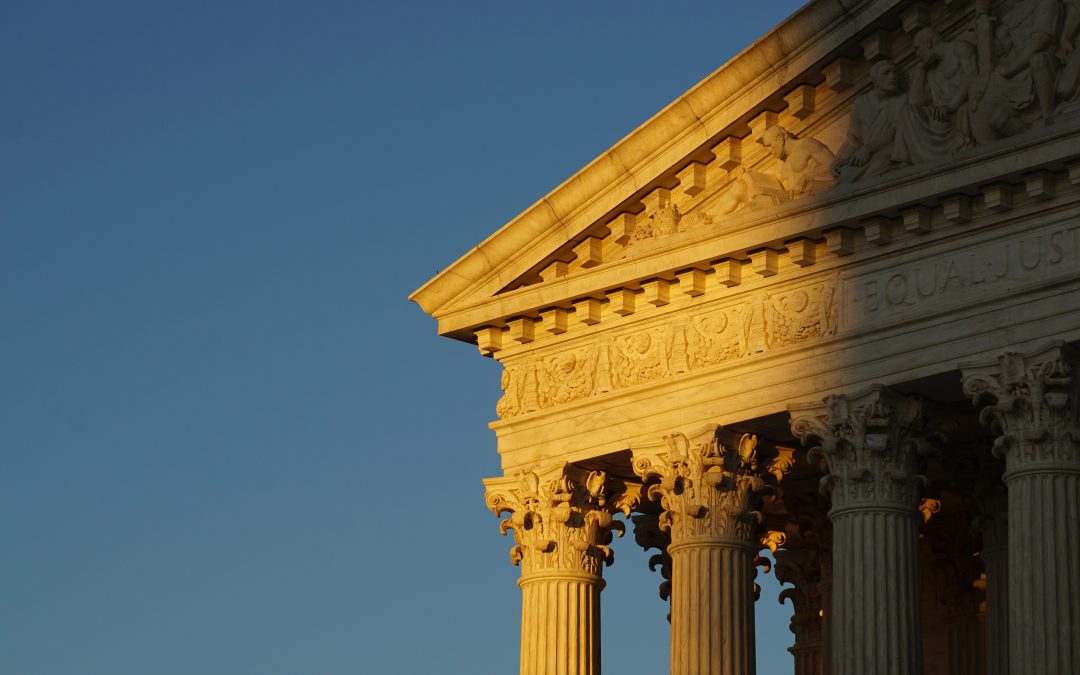
Cautioning Politics in Preaching: A Case Study
In volatile political climates, the church and her elders are ever pressured to use the pulpit as an opportunity to correct the ills of the state.
The pulpit, it is often thought, is a place not only to proclaim the articles of faith for the benefit and comfort of God’s people but also serves as a platform for political redress. True enough, a place ought to be given in the pulpit for the rebuke and correction of national sins and governmental woes. But as ministers of the gospel, we must be careful to present such rebuke and correction while considering the needs of the congregation before us. Three principles help us understand how to preach politically when the need arises.
First, rebuke and correction of national sins must arise from the text of Holy Scripture. Second, we should avoid making the rebuke and correction of national sins the point of the sermon. Third, we must be careful not to present such rebuke and correction in a way that would distract the congregation from the hope they have in Christ.
The first consideration is exegetical, the second is homiletical, and the third is pastoral. We will consider each of these in turn while examining particular instances from George Swinnock, Thomas Hall, and William Perkins.
The Exegetical Consideration: A Biblically Grounded Rebuke of National Sin
In his work, The Beauty of Magistracy, Thomas Hall writes:
This psalm may fitly be called the magistrate’s psalm, or the magistrate’s directory. The matter of it is didactical and doctrinal, setting forth the dignity, duty, and mortality of magistrates and judges, whom the psalmist exhorts to a faithful discharge of their places, by an impartial administration of justice, in punishing the wicked, and defending the good; and this he backs with many weighty arguments.[1]
The introductory placement of this paragraph should be noted. It appears early on in a sermon from Psalm 82. And while Hall is addressing the proper situation of civil politics under the Lordship of God, he does so in service to a faithful exposition of the text. Again, beginning with the text in his work on magistrates from Psalm 82, George Swinnock similarly notes:
The text presenteth us with a concession of the magistrates’ allegation for their illegal proceedings. They argued that, because they were gods, they might tyrannise over men: that the stamp of a deity on them would make them current coin, though they were never so light.[2]
What are we taught in the method of both Hall and Swinnock? Biblical and exegetical priority. Notice that neither of these two men begin with any particular event that sparked a felt need to preach and write these things. They began with the text and the doctrine therein.
As preaching elders, we must be wise in how we redress political grievances. It is sometimes (even rarely) our duty to do so, but it must be done in a principled, rather than haphazard, manner. Given the constant flow of information in the 21st century, one may be tempted to use headlines as opportunities to react from the pulpit — giving political commentary while perhaps preaching the biblical imperatives throughout. However, this is not how the church has historically addressed national or political sins.
The flow of preaching and writing in the work of our spiritual ancestors seems to begin with the text, then move to the general principles or doctrines, ending in the development of uses from those principles. They do not begin with the contemporary political issue, move to the text in service of that concern, only to preach imperatives at the congregation.
The Homiletical Consideration: The Goal of a Sermon
Because both Hall and Swinnock are preaching and writing from the text, they have ample opportunity to interject other doctrines as the passage and the analogy of faith allows. The goal of both works is not the correction of the state per se, but a proclamation of the Lordship of God over all things — in this case, over the magistrate. Homiletically, Hall’s sermon takes the people of God to God. In Swinnock’s case, he instances both theology proper and the doctrine of the incarnation, writing:
He is God by nature, and he hath given them to be gods by name. The deity was by incarnation clothed with the human nature, and humanity is here by God’s designation clothed with the divine name. ‘I will praise thee before the gods,’ saith David, Ps. 138:1; that is, the tune of my heart shall be high in singing thy praise, even before them that are by thy command highest in place.[3]
His closing words are as follows:
Oh think of that day, and let it move thee to a faithful, zealous discharge of thy duty. Zaleucus Locrensis, in his proem to his laws, hath these words: ‘Let this be often pressed upon men, that there are gods, and that an account must be given to them of men’s actions.’ Consider the day of the Lord is coming, and who may abide it! In a word, ‘Hear the conclusion of the whole matter, Fear God, and keep his commandments, for this is the whole duty of man: For God shall bring every work into judgment, with every secret thing, whether it be good, or whether it be evil,’ Eccles. 12:13, 14.[4]
The question is not whether we address political issues from the pulpit. Certainly there is a place for this. The question is in what way and for what reason we do so. In the above cases, the goal is not so much the reformation of the state, but the exaltation of God in the midst of the people.
The Pastoral Consideration: The Proper Care of Souls
What is the purpose of preaching?
William Perkins remarks in his famous volume, The Art of Prophesying, “For the prophet (that is, the minister of the Word) has only two duties. One is preaching the Word, and the other is praying to God in the name of the people…” (Prophesying, Introduction) He elaborates under “Use and Application,” writing:
The basic principle in application is to know whether the passage is a statement of the law or of the gospel. For when the Word is preached, the law and the gospel operate differently. The law exposes the disease of sin, and as a side-effect stimulates and stirs it up. But it provides no remedy for it. However the gospel not only teaches us what is to be done, it also has the power of the Holy Spirit joined to it. When we are regenerated by him we receive the strength we need both to believe the gospel and to do what it commands. The law is, therefore, first in the order of teaching; then comes the gospel. (Prophesying, VII)
Perkins then runs through several categories of “hearers,” bringing awareness to the variety of spiritual needs in any given congregation — from unbelievers to ignorant hearers, to humbled hearers needing a gentle explication of both law and gospel. He writes:
Expound the law to them carefully tempered with the gospel, so that being terrified by their sins and the judgment of God they may at the same time find comfort in the gospel (Gen. 3:9-15; 2 Sam. 12; Acts 8:20-23). Nathan gives us an example here. Having been sent from God, he recalled David to an awareness of his true condition through a parable, and then pronounced him pardoned when his repentance was certain. (Prophesying, VII., Categories of Hearers)
As ministers of the gospel, we should remember that the people in the pews represent a multitude of circumstances and concerns. There are many who are exposed to news feeds throughout the week and who have tendencies to grow anxious in the face of current events. Might it be better for them to be taken to the sovereignty of God and the benevolence of their Savior? Conversely, there are those who may have grown complacent, caring not for their place in this world whatsoever. Perhaps it is good for them to be reminded of the law of God and their Christian duty — yet never in such a way as to neglect the grace of the gospel. A given sermon should unfold a buffet of spiritual food that will feed the whole of God’s people, no matter where they find themselves in life.
May we, as gospel ministers, strive to emulate these men of the past. And when political preaching seems necessary, may we not forget the needs of our flocks.
Resources:
[1] Hall Thomas, “The Beauty of Magistracy,” in The Works of George Swinnock, M.A., vol. 4 (Edinburgh; London; Dublin: James Nichol; James Nisbet and Co.; G. Herbert, 1868), 158.
[2] George Swinnock, The Works of George Swinnock, M.A., vol. 4 (Edinburgh; London; Dublin: James Nichol; James Nisbet and Co.; G. Herbert, 1868), 305.
[3] Swinnock, The Works of George Swinnock, 308.
[4] Swinnock, The Works of George Swinnock, 372.





